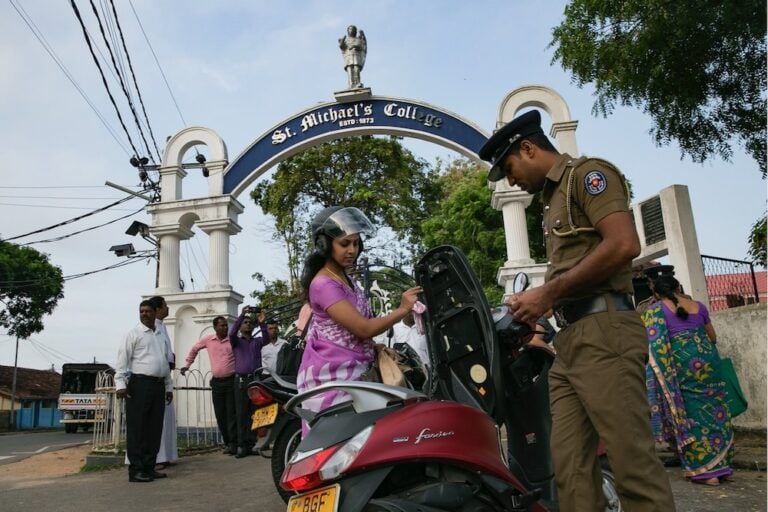(FMM/IFEX) – The following is an FMM press release: The Free Media Movement (FMM) is severely disappointed that the government, without any dialogue or consultation with the media community, decided to impose a new levy on foreign films and dramas that make it almost impossible for them to be broadcast on television in Sri Lanka. […]
(FMM/IFEX) – The following is an FMM press release:
The Free Media Movement (FMM) is severely disappointed that the government, without any dialogue or consultation with the media community, decided to impose a new levy on foreign films and dramas that make it almost impossible for them to be broadcast on television in Sri Lanka.
This levy is imposed under the Financial Act No.01, 2006.
This levy came into effect from July 15, 2006. As a consequence, television stations have to pay Rs. 75,000 to Rs. 90,0000 [approx. US$725 to 870] per half an hour of foreign films or dramas. A levy of one million rupees [approx. US$9,680] is also imposed as a consequence of the Act on any foreign commercials shown on local television. According to the Act, educational, children’s or award winning films, etc, will be exempt from the tax.
The reason given by the government for the imposition of this levy is to, ostensibly, encourage and protect the local film and tele-drama industry. Even if this was the reason, the government should have initiated a dialogue with relevant broadcasters and ascertained whether alternative methods that safeguarded the public’s right of choice could have been developed.
Instead what we have today is a heavy tax, imposed unilaterally, that is denying public access to choice. The FMM strongly feels that the implementation of this levy will pave the way for a cultural police to view and rate all foreign films and tele-dramas, tantamount to indirect censorship.
The FMM recognises the need to support the local film and tele-drama industry. At the same time FMM stands for the promotion of public service values in the Sri Lankan media in general.
If the government is sincere about supporting local art and culture through television it should first make state media, now under its political control, independent, politically, financially, and culturally – transforming them into public service media able to strengthen the local media industry and culture.
The FMM strongly feels that this Act discriminates against citizens of this country by restricting people’s entertainment rights. Furthermore, two English-language channels are faced with the possibility of closing down because of this tax.
On account of all these reservations, and also keeping in mind the general deterioration of media rights in Sri Lanka, the FMM strongly urges the government to not implement this Act.


